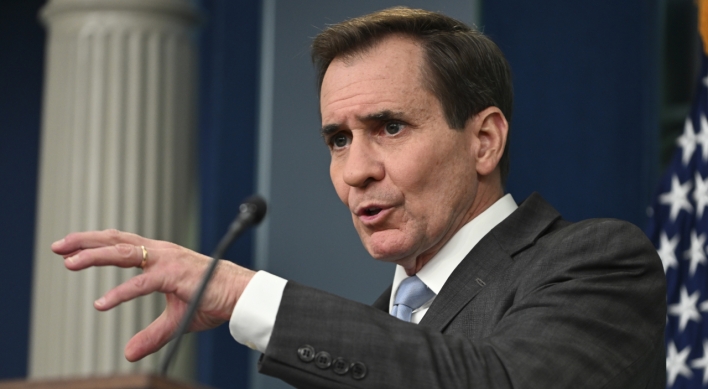[Kim Seong-kon] The American dream versus the Korean dream
By Korea HeraldPublished : Feb. 7, 2012 - 14:26
What is the American dream? In 1782 Hector St. John Crevecoeur wrote about America under the title, “What is an American?” In his famous volume of narrative essays, “Letters from an American Farmer,” he wrote about America: “ ... (it) is not composed, as in Europe, of great lords who possess everything and of a herd of people who have nothing. Here are no aristocratic families, no courts, no kings, no bishops ... The rich and the poor are not so far removed from each other as they are in Europe.” 
Indeed, Crevecoeur’s perception of and insight into America was quite keen and penetrating. In his eyes, the New World, unlike Europe, was the land of opportunity where anyone could climb up the ladder of economic and social ascension despite his family, ethnicity or educational background. In his autobiography, Benjamin Franklin also assured his fellow Americans that as long as one is diligent, sincere and honest, one will be successful and realize his dreams in America. Franklin suggested his famous 13 virtues, which included temperance, order, frugality, industry, sincerity and resolution.
From the beginning, however, American writers have pointed out the naivet and fragility of the American dream. Nineteenth century American writers such as Washington Irving, Edgar Allan Poe, Nathaniel Hawthorn, Herman Melville and Mark Twain invariably criticized the vastly inflated, sometimes tainted American dream, perceiving its potential to easily turn into a nightmare. They argued, for example, the American dream failed to include ethnic minorities or could simply be a mundane dream of material success as exemplified in the gold rush.
In the 20th century, great American writers continued to warn about the distortion of the fresh, original American dream of the Founding Fathers. In “The Great Gatsby,” for example, F. Scott Fitzgerald poignantly mocked Franklin’s nave optimism through the use of Gatsby’s childhood diary that showed the aspiring, innocent boy faithfully following Franklin’s principles. However, Gatsby’s life in reality suggested that if one followed Franklin’s 13 virtues, one could end up poor and destitute. In the first chapter of “Trout Fishing in America,” Richard Brautigan, too, powerfully castigated Franklin’s optimistic but misleading vision of America by depicting a scene with the hungry homeless in Washington Square in San Francisco, who gathered under the statue of Franklin, waiting for a signal from the nearby church for free sandwiches.
Then in 2012, Richard Stengel, managing editor of Time magazine, wrote in his editorial: “The American promise is that people are not prisoners of the circumstances of their birth. Who your parents are or where you were born should not determine your destiny. From the beginning, this has always been one of our self-evident truths. And for many decades, the U.S. had greater social mobility than other developed countries. But that is no longer true. The U.S. now ranks behind France and Finland in terms of the ability of people to move up the economic ladder.”
This sounds all very familiar to the Korean people. Koreans have long been complaining about injustice in Korean society. We thought it was Koreans, not Americans, who were the “prisoners of circumstances of our birth.” We thought that in Korea who your parents are or where you were born determined your destiny. And we thought we could never climb up the economic and social ladder, no matter how hard we tried. Naturally, we have admired the American dream and America as the land of opportunity. Now we are surprised to know that Americans are lamenting its fading. And we are sorry, but also in a sense relieved by Stengel’s editorial that informs us we are not the only ones who are frustrated by the receding dream.
These days, we frequently talk about the Korean dream. Originally, we did not have a Korean dream, per se; the term has been recently coined due to the massive influx of foreign migratory workers. We should let foreign workers cherish the Korean dream by assuring them that the Korean promise is that “people are not prisoners of the circumstances of their birth” and “who your parents are or where you were born should not determine your destiny” in Korea. Under no circumstances should we maltreat or exploit vulnerable foreigners in our land and crush their dreams.
By the same token, the Korean dream should extend to the Korean people as well. Who our parents are or where we were born should not determine our destiny. What school we graduated from should not determine our social status and class, either. No Koreans should be prisoners of the circumstances of their birth. Only then, we can say there is such a thing as the Korean dream.
Dreams are fragile in nature and thus can be shattered easily. Oftentimes, dreams can recede, and even turn into nightmares. Nevertheless, it is our dream that sustains us in hard times. We hope America can restore the American dream that has inspired so many nations on earth. We also hope that the Korean dream can inspire many countries in Asia. After all, how can we live without a dream?
By Kim Seong-kon
Kim Seong-kon is a professor of English at Seoul National University and director of the Korea Literature Translation Institute. ― Ed.
-
Articles by Korea Herald





![[Music in drama] Rekindle a love that slipped through your fingers](http://res.heraldm.com/phpwas/restmb_idxmake.php?idx=644&simg=/content/image/2024/05/01/20240501050484_0.jpg&u=20240501151646)




![[New faces of Assembly] Architect behind ‘audacious initiative’ believes in denuclearized North Korea](http://res.heraldm.com/phpwas/restmb_idxmake.php?idx=644&simg=/content/image/2024/05/01/20240501050627_0.jpg&u=20240502093000)








